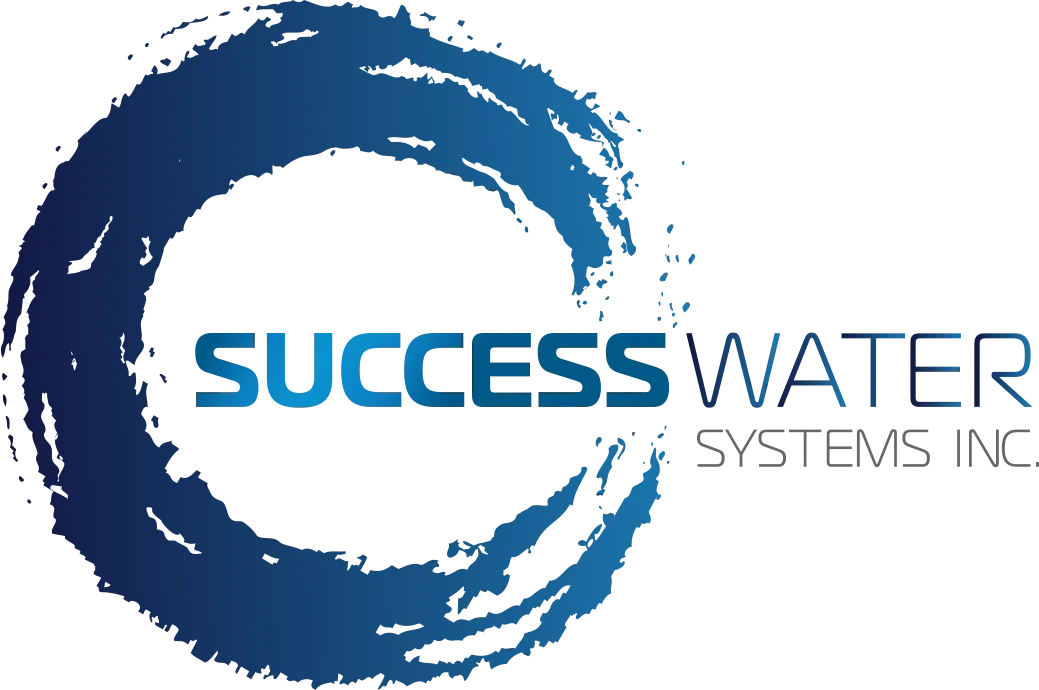Common Questions About Water Treatment
To understand soft water, we need to know what makes water hard. Hard water is water that has a high mineral content. It’s a natural result of minerals like calcium and magnesium accumulating during the water cycle, and it can happen with well water and even city water. The more calcium and magnesium dissolved in the water, the harder the water becomes. This is why certain cities and counties within the same state can have varying degrees of water hardness.
A water softener system treats your water at the point it enters the home. Having soft water means removing hardness before the water travels through your pipes and into your water-using appliances, and before you draw water from the taps of your bathrooms and kitchen. Soft water is one grain of hardness per gallon (GPG) or less.
One of the biggest misconceptions about water softeners is that salt is what softens your water. What actually softens the water are the thousands of resin beads inside your softener that filter out hard water minerals.
Water softeners use a negatively charged ion exchange resin to collect the hardness from your water. The resin becomes charged when it mixes with a sodium or potassium solution. The salt in the water softener isn’t what softens the water; it is what enables the resin to collect and remove the hardness from your water.
The EcoWater refiner softens your water and reduces chlorine taste and odor, which is often a result of water treated by cities and municipalities. Regeneration is the term for when the resin is being cleaned and recharged in the sodium solution.
An EcoWater water softener system removes the hardness in your water, so your skin is rinsed without hard water minerals left behind. There is no residue on your skin to trap traces of soap, dead skin cells, and other particles, and no residue left behind that dries your skin. The slippery softness you feel is exactly how clean skin is supposed to feel.
In the same way that soft water reduces water spots that dry onto your glassware and silverware, it allows your bath soaps to rinse off more thoroughly. Not only that, but soaps will lather more, and you’ll be able to use half as much.
Most municipalities treat water by using chlorine to kill bacteria. Some might even soften the water, but only to meet minimum requirements. That doesn’t mean it is ideal for your family.
An EcoWater Systems water refiner softens your family’s water by removing the hard minerals and sediments that weren’t removed by the municipality, and it also reduces the chlorine taste and odor.
Your authorized EcoWater Pro can evaluate your water and recommend a water softener system or a whole home filtration system customized to treat your home’s water. The benefits include:
- Reduced scale buildup on pipes, faucets, and water-using appliances, providing energy savings
- Reduced iron stains, tastes, and odors
- Cleaner, brighter laundry
- Reduced use of soaps and detergents
- Reduced spots on glassware and silverware
- Softer skin and hair
The right product for your home is determined by testing your water, considering how many people are living in your home, understanding your normal water usage, taking into account the number of bathrooms you have, understanding the water-using appliances in your home, etc. Authorized EcoWater consultants are water treatment professionals trained to understand your family’s needs and determine the right product for your home.
Yes. A study released at Water Quality Association’s Aquatech USA indicates, “the use of efficiently operated water softeners improves septic tank performance, while the use of very inefficiently operated water softeners may have a negative effect on solids discharge to the drain field and the level of impact will depend on the level of hardness in the water, whether the regeneration waste is discharged to the septic tank, and the amount of excess sodium present in regeneration waste.”
EcoWater Systems are among the industry’s most efficient, and the company has a long-term commitment to minimizing its environmental footprint and using water responsibly.
- EcoWater water softeners use fewer than 17.5 kilowatt hours of energy per year. That equates to less than $4.00 per year to operate your EcoWater water softener (based on 2023 PG&E rates).
- EcoWater water softeners, conditioners, and refiners regenerate only as needed, saving up to 50% on water and salt versus timer-based models.
- EcoWater eliminates the use of harmful compounds in its manufacturing processes.
- Water used in manufacturing and testing products is captured and reused.
- EcoWater continually reduces the environmental impact of its products, including the way they are packaged, shipped, and sold.
Carbon filters reduce chlorine taste and odor, but they cannot reduce sodium or the dissolved solids and other contaminants that are in a lot of people’s drinking water.
Ordinary tap water can contain dissolved metals, such as iron or lead. It might contain chlorine, nitrates, and mineral salts. Or it could have sulfates, mercury, asbestos, or arsenic in it. A reverse osmosis water treatment system from EcoWater reduces more than 95% of dissolved solids, including many harmful contaminants, based on maximum permissible concentrations.
While most homeowners may never encounter scary-sounding contaminants like toxaphene and trichloroethylene, there are several common water problems to be on the lookout for in the home:
- Hard water
- Chlorine
- Iron — ferrous and ferric
- Manganese
- Hydrogen sulfide
- Sediments
- Raised acidic levels (low pH)
- Arsenic
- Lead
- Nitrates
- Microbes
- Pharmaceuticals
For more information on these water problems, see Water Symptoms.
The EcoProTechT Anti-Scale system for hard water is not a salt-based water softener. It manages hard water by using a proprietary PTT media that can bring hard minerals down to a microscopic crystalline that does not readily attach to pipes, fixtures, or appliances. The microscopic crystals are simply rinsed away with the normal flow of water.
